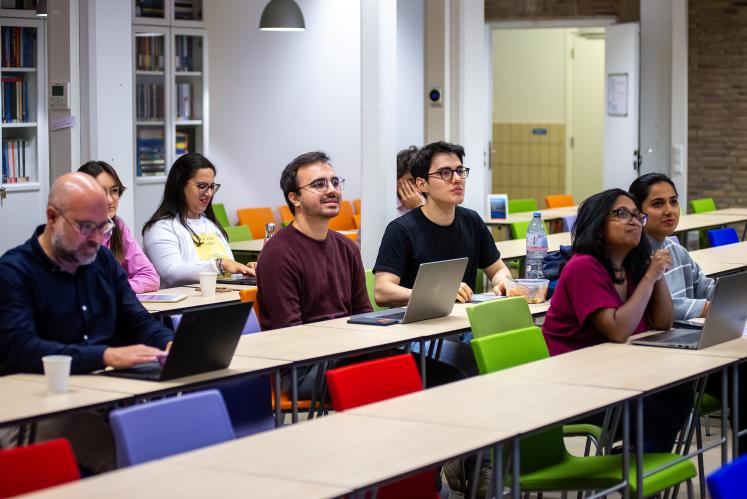On Tuesday 10 September 2024, UNU-MERIT’s UNESCO Chair on Science, Technology and Innovation for Sustainable Development for Latin America hosted a research seminar featuring guest speaker Carlos Bianchi, followed by a workshop in which a group of five of our junior researchers (hailing from Paraguay, Brazil, Uruguay, Colombia and Spain) presented their research to Prof. Bianchi on topics related to the continent of Latin America and its policies.
The seminar - titled 'Varieties of middle-income trap: A Latin American perspective on structural change trajectories and external demand constraints' - began with an introduction from UNU-MERIT's Carlo Pietrobelli about our UNESCO Chair. [To learn more about the activities of our UNESCO Chair team, see their 2022-2023 annual report here.]
During the seminar, Carlos Bianchi - Professor at the University of the Republic (UDELAR) in Uruguay and President of the Latin American Network for Economics of Learning, Innovation and Competence-Building Systems (LALICS) - described his UDELAR team's findings on the problems and challenges of development in middle-income countries, with an emphasis on Latin America.
Following a Q&A session and a break, the research workshop began, the intention of which was to facilitate an open dialogue with Prof. Bianchi on the research currently being carried out by our PhD fellows, Master's students and junior academic staff. Here, we share an overview of the topics that were discussed.
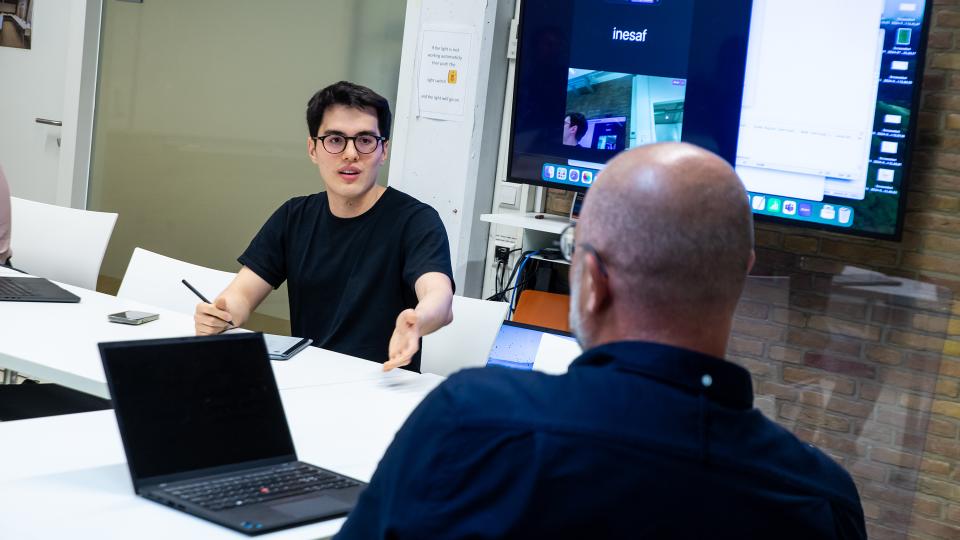
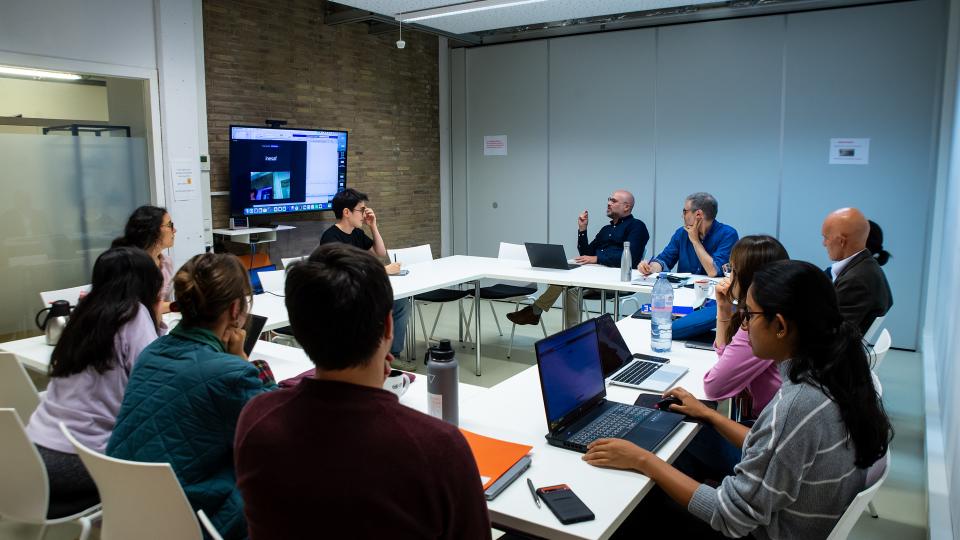
Collaboration between foreign-educated and local researchers in Colombia
Rodrigo Ito, 5th year PhD fellow, Brazilian national and lead author of the Inter-American Development Bank (IDB) Working Paper 'Connecting the Dots: The Role of Internationally Mobile Scientists in Linking Nonmobile with Foreign Scientists', presented research carried out for a continuation of this IDB paper (co-authored with Diego Chavarro, Tommaso Ciarli, Robin Cowan and Fabiana Visentin). The new follow-up study by Ito and colleagues focuses specifically on the aspect of scientific performance and will be published by the IDB in the coming months. Ito explains:
"We investigate whether Colombian researchers who obtained a PhD abroad (foreign-educated researchers) help researchers who never moved abroad (non-mobile researchers) in terms of their scientific performance (e.g., number of publications and citations). We find that those non-mobile researchers who co-author with foreign-educated researchers experience a rise in the number of their publications, citations, and publications in English. These results are mainly sustained through the collaborations with the foreign-educated ones.
As for the impact of this research, a common strategy of countries with emerging economics is to send PhD students abroad, in order to improve the scientific capabilities of their populations. The implication of our study is that funding foreign studies is valuable not only to the funded students themselves, but also to scientists who do not leave the sending country. However, in order to maximize that value, it is important to facilitate collaboration between the local and foreign-educated scientists."
Innovation in Latin America
PhD fellow María de las Mercedes Menéndez presented a paper about green technological innovation in South America that she has been working on together with her UNESCO Chair colleagues Carlo Pietrobelli and Jorge Valverde, as well as Sergio Palomeque (UDELAR). During her presentation, Menéndez stated:
"Our two aims with this research paper are:
1. Examining the extent to which new specialisation in green technologies is more likely in Latin American countries with existing knowledge bases in green technologies, non-green technologies, or both.
2. Exploring how international or local collaborative networks determine which countries produce new green knowledge.
Our preliminary results confirm that the greater the pre-existing green and non-green knowledge base of a Latin American country is, the more likely they are to specialise in green technologies. Interestingly, our findings also indicate that as countries become richer, the probability of diversification in green technologies decreases."
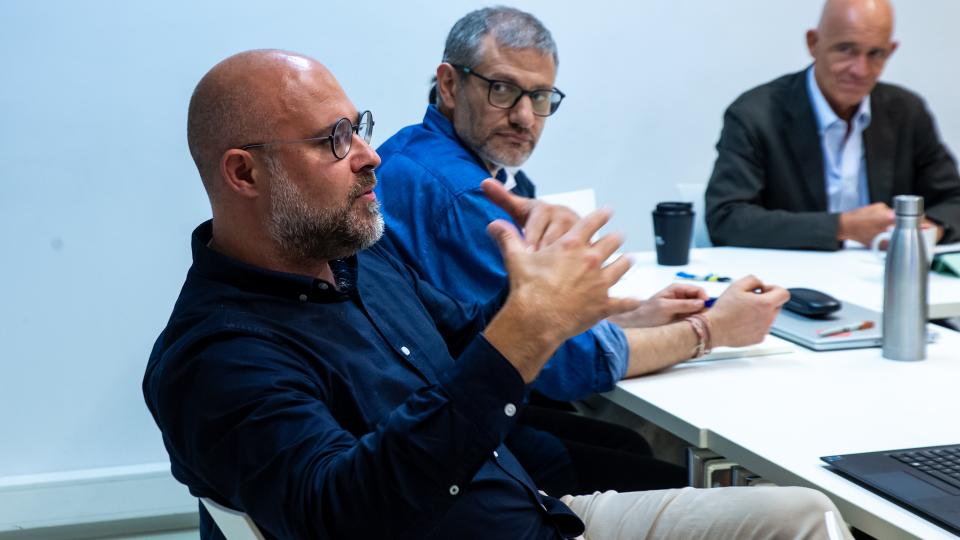
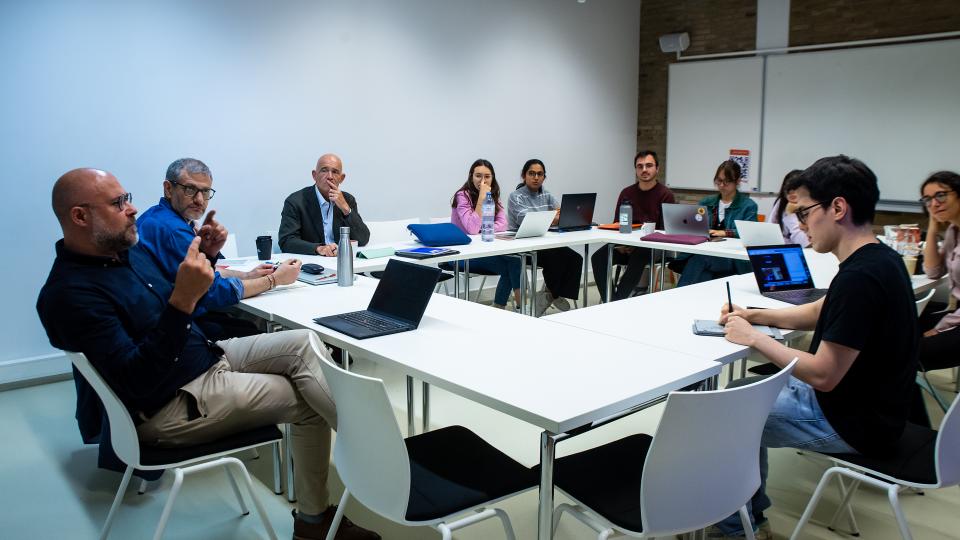
Hidden poverty in Colombia’s secondary cities
2nd year PhD fellow and Colombian national María Nathalia Ramírez Chaparro presented her research proposal for her PhD thesis, titled 'Hide and Seek: Unveiling hidden poverty meaning and dimensions: an approach from Colombia’s secondary cities'.
She reflects: “At the workshop, I presented my research proposal on hidden poverty, particularly as it relates to the middle class. This type of poverty tends to remain behind closed doors, involving a sense of shame and improverishment that’s less visible but deeply impactful. While I’m currently exploring this issue from a theoretical perspective, my goal is to develop a way to measure it in the future. Since my research will focus on Latin America, and the seminar was about middle-income traps in the region, I found it particularly relevant and insightful.”
Agricultural expansion in Paraguay
Lucas Boh (recent graduate of our MSc in Public Policy and Human Development) presented the research he completed for his Master's thesis. In his own words:
"My thesis explored the relationship between real estate taxation (RET) and agricultural expansion in Paraguay. The research involved analysing the current operation and performance of the RET based on administrative data, utilizing Dynamic World (DW)—an innovative land cover classification tool—to measure agricultural expansion, and conducting regression analysis to examine the effects of increases in cropland coverage on RET revenues and collection ratio at the district level between 2020 and 2022. A summary of the research can be found here.
This research provides up-to-date insights of the real estate tax operation and performance, providing valuable information for future research that is not readily accessible. This research also contributes to the literature by exploring the implementation of DW in the context of tax administration. The rich data generated with DW enables the exploration of the impacts of land cover changes on real estate taxation performance in an innovative way.
The fact that the research topic was about my home country (Paraguay) motivated me a lot and gave me the possibility to speak with interesting people about the issues covered in the thesis."
Discrimination towards migrants in Mexico
Ines Alejo, another recent graduate of our Master's programme, presented her thesis on 'Assessing the effectiveness of light touch interventions in tackling discriminatory attitudes toward migrants in Mexico: a randomised experiment'. Here, she shares her thoughts on the topic:
"While discrimination toward migrants is often discussed in destination countries like the U.S. or some others in the Euro-Mediterranean region, it is a pressing issue that deserves attention in Mexico as well, as a country that has evolved from a place of origin to also being one of transit for migrants.
In this Latin American country, despite having a strong legal framework against discrimination, there is a significant gap in evaluation. My work represents a small step towards bridging that gap, analyzing the effectiveness of short videos designed to resonate with efforts by the Mexican government to reduce discriminatory attitudes.
It's crucial that that we assess whether—and to what extent—the efforts conducted by the government yield tangible results and how we can utilize resources most cost-effectively. Public policies must be evidence-based.
Although I am originally from Spain, I have lived and worked in Mexico for five years now, and it’s important for me to contribute my part—in this case, academically—towards making this country better for everyone, so that was certainly a strong motivation for my research."

